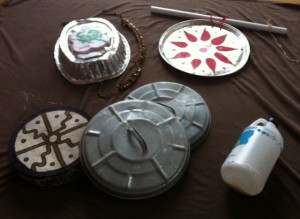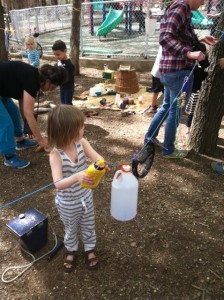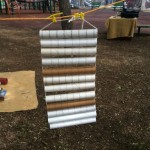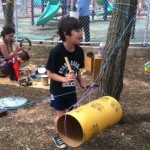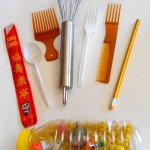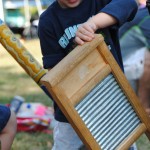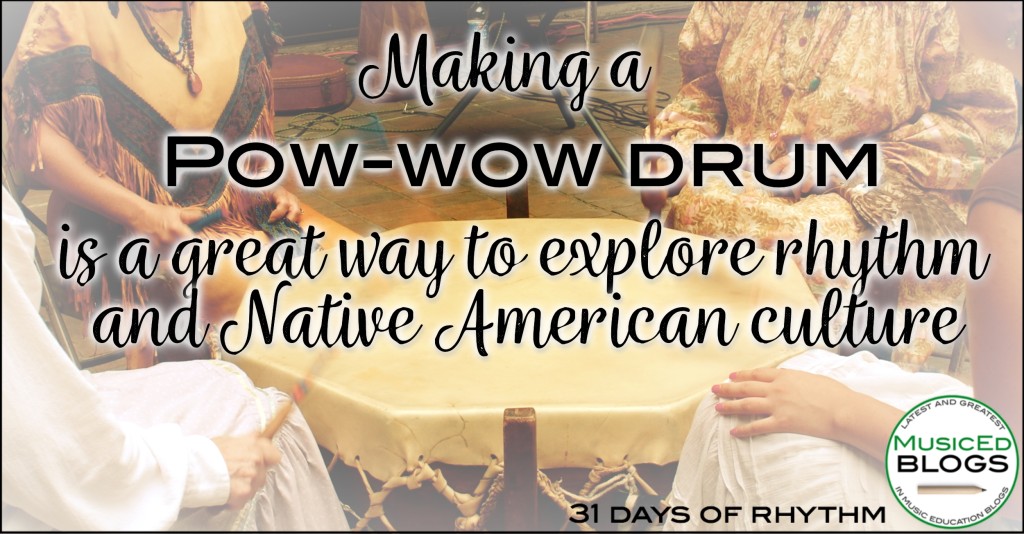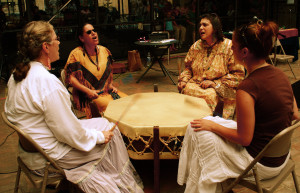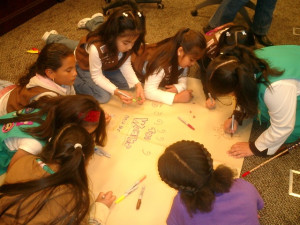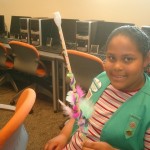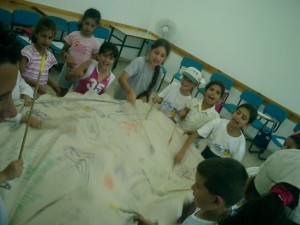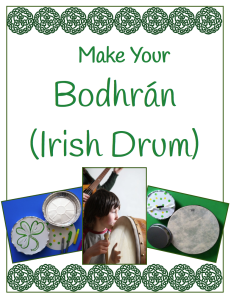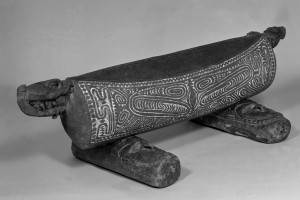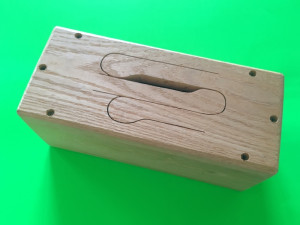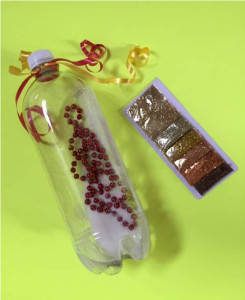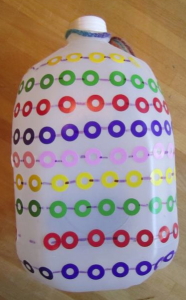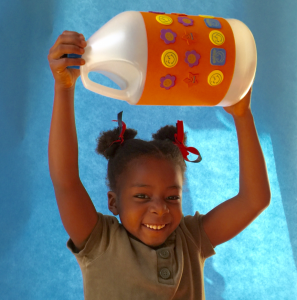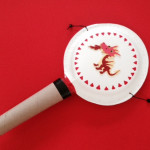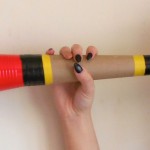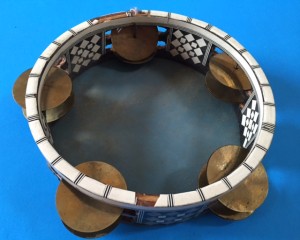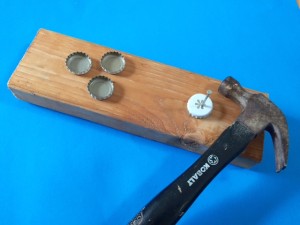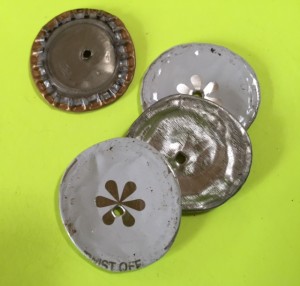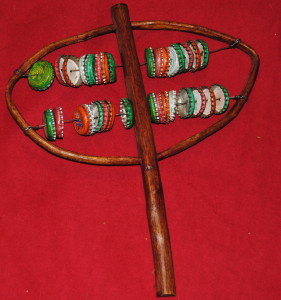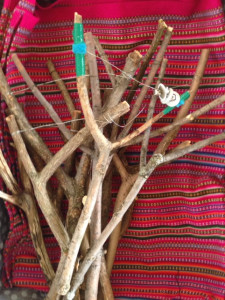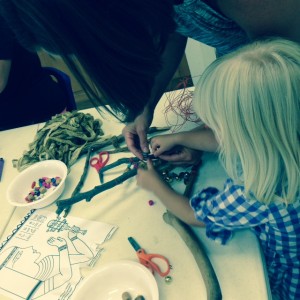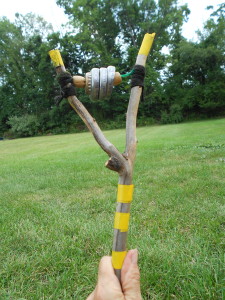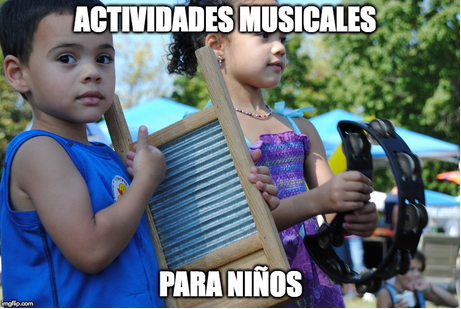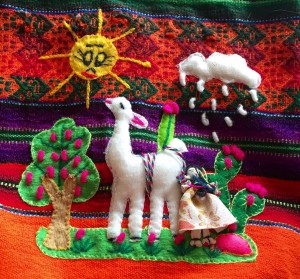 Hispanic Heritage Month – September 15th to October 15th every year – is a great time to explore the many diverse and beautiful cultures with Hispanic roots. Making and playing simple musical instruments from these cultures is a great way to discover more about countries like Mexico, Chile, Cuba, Spain, Argentina, Peru, Puerto Rico, Honduras or Ecuador. And it’s a great way to enjoy time with your children, by learning simple songs or playing music together.
Hispanic Heritage Month – September 15th to October 15th every year – is a great time to explore the many diverse and beautiful cultures with Hispanic roots. Making and playing simple musical instruments from these cultures is a great way to discover more about countries like Mexico, Chile, Cuba, Spain, Argentina, Peru, Puerto Rico, Honduras or Ecuador. And it’s a great way to enjoy time with your children, by learning simple songs or playing music together.
Over the last decade, we’ve assembled our favorite musical crafts that delight young kids, so feel free to use these a starting point for giving your little global citizens the whirlwind tour of Latino music and culture. Here are some of our reader’s favorite, plus links below to freebie coloring and instrument information pages available through the TeachersPayTeachers site.
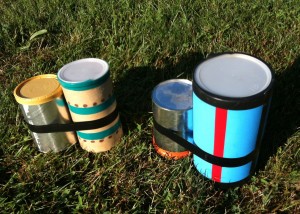 Sharing Bongos With Babies
Sharing Bongos With Babies
Bongo drums are a wonderfully simple drum to make and play. With Afro-Cuban roots, they consist of two small hand drums with differing sounds, so tapping back and forth creates many marvelous rhythmic possibilities. Make two sets for parent and child and try your hand at becoming a skilled “bongocero”.
Here’s what you need for this MYO bongo project. Two cylindrical (oatmeal, coffee cans, etc.) containers, decorative materials and some sturdy tape. Plus a desire to bang on a drum all day! Read the full post here: http://www.tinytappingtoes.com/uncategorized/bongos-for-babies-and-big-kids-too/
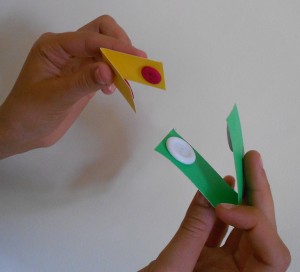 Create Some Castanets
Create Some Castanets
Got buttons? This simple craft creates a convincing castanet that almost anyone can play between their thumb and first finger. Supplies needed for this craft are matched sets of buttons, glue and some sturdy paper, like a manila folder or colorful poster board.
To get all the directions you need to click and clack away, visit: http://www.tinytappingtoes.com/early-learning-with-music/easy-and-funbutton-castanets/
The Zampoñas – A Wonderful Wind Instrument
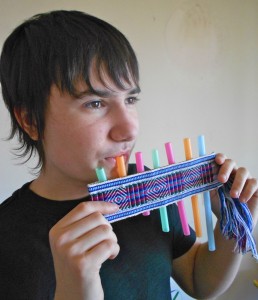 Panpipes can be heard throughout South American folk music. Their unique breathy sound comes from blowing over the top of open reeds that are cut to various lengths. You can make your own version from wide straws and decorate them like real zamponãs. With a bit of practice, you’ll get the hang of blowing over the edges of the straws (as opposed to into them) and be creating simple tunes that you recognize or even melodies from the Andes!
Panpipes can be heard throughout South American folk music. Their unique breathy sound comes from blowing over the top of open reeds that are cut to various lengths. You can make your own version from wide straws and decorate them like real zamponãs. With a bit of practice, you’ll get the hang of blowing over the edges of the straws (as opposed to into them) and be creating simple tunes that you recognize or even melodies from the Andes!
Get your step-by-step instructions and tips here: http://www.tinytappingtoes.com/early-learning-with-music/make-your-own-simple-panpipes/
Get a Guiro!
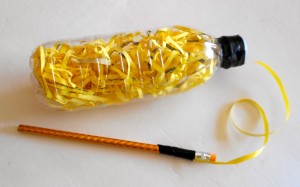 You’ll recognize the sound of a guiro right away, and if you don’t – you can hear one here: http://www.dariamusic.com/guiro.php. This project is so easy to make and play, then scrape away at rhythms all day long. Use your new guiro to play along with music from Puerto Rico, Cuba or Mexico. Or sing your favorite song in Spanish and use the guiro to keep the beat!
You’ll recognize the sound of a guiro right away, and if you don’t – you can hear one here: http://www.dariamusic.com/guiro.php. This project is so easy to make and play, then scrape away at rhythms all day long. Use your new guiro to play along with music from Puerto Rico, Cuba or Mexico. Or sing your favorite song in Spanish and use the guiro to keep the beat!
Read the full post here: http://www.tinytappingtoes.com/uncategorized/easiest-instruments-for-young-children-the-guiro/
Free Coloring And Hispanic Instrument Pages from DARIA’s TPT Store
Mariachi Guitar Coloring Page
https://www.teacherspayteachers.com/Product/Mariachi-Guitar-Coloring-Page-2511636
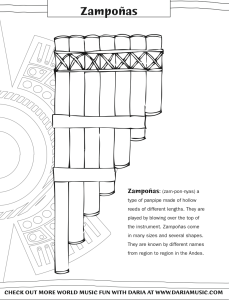 Color the Zampoñas – Panpipes From The Andes
Color the Zampoñas – Panpipes From The Andes
https://www.teacherspayteachers.com/Product/Color-the-Zamponas-Panpipes-From-The-Andes-650601
Color A Bombo – A Drum From The Andes
https://www.teacherspayteachers.com/Product/Color-A-Bombo-A-Drum-From-The-Andes-650642
Color The Chapchas – A Rattle From The Andes
https://www.teacherspayteachers.com/Product/Color-The-Chapchas-An-Instrument-from-The-Andes-650050
The Cajón – Make And Play Your Own “Box Drum”
https://www.teacherspayteachers.com/Product/What-is-a-Quijada-Jawbone-Instrument-1406336
What is a Quijada (Jawbone Instrument) https://www.teacherspayteachers.com/Product/What-is-a-Quijada-Jawbone-Instrument-1406336
Wishing everyone a marvelous month celebrating the beauty and diversity of Hispanic cultures throughout the world!
Multicultural Kid Blogs HHM Give-Away!
 We are so excited for our FIFTH annual Hispanic Heritage Month series and giveaway! Through the month (September 15 – October 15), you’ll find great resources to share Hispanic Heritage with kids, plus you can enter to win in our great giveaway and link up your own posts on Hispanic Heritage!
We are so excited for our FIFTH annual Hispanic Heritage Month series and giveaway! Through the month (September 15 – October 15), you’ll find great resources to share Hispanic Heritage with kids, plus you can enter to win in our great giveaway and link up your own posts on Hispanic Heritage!
September 14
Hanna Cheda on Multicultural Kid Blogs: How to Pass on Hispanic Heritage as an Expat
September 15
Spanish Mama: Los Pollitos Dicen Printable Puppets
September 16
Hispanic Mama: Children’s Shows that Kids in Latin America Grew Up With
September 19
Spanish Playground: Authentic Hispanic Heritage Month Games Everyone Can Play
September 20
Tiny Tapping Toes
September 21
Kid World Citizen on Multicultural Kid Blogs
September 22
Spanish Mama
September 23
All Done Monkey
September 26
Crafty Moms Share
September 27
Discovering the World Through My Son’s Eyes
September 28
La Clase de Sra. DuFault
September 29
Embracing Diversity
September 30
Mama Tortuga
October 3
Hispanic Mama on Multicultural Kid Blogs
October 4
La Clase de Sra. DuFault
October 5
Pura Vida Moms
October 7
Spanglish House
October 10
Mundo Lanugo
October 11
Kid World Citizen
October 12
MommyMaestra
October 13
inspired by familia
October 14
El Mundo de Pepita on Multicultural Kid Blogs
Don’t miss all of the great posts from previous years as well: 2012, 2013, 2014, 2015
Hispanic Heritage Month Giveaway!
Giveaway begins September 14 and goes through October 14, 2016.
Enter below for a chance to win one of these amazing prize packages! Some prizes have shipping restrictions. In the event that a winner lives outside the designated shipping area, that prize will then become part of the following prize package. For more information, read our full giveaway rules.

Grand Prize
-Month of free access to online Spanish home learning program from Calico Spanish
-If You Were Me and Lived in… series, Peru, Mexico, Brazil, and Portugal books from Carole P. Roman US Shipping Only
-Spark important conversations about diversity, inclusivity and acceptance with award-winning Barefoot Books! Collection includes Barefoot Books World Atlas, The Barefoot Book of Children, Children of the World Memory Game, The Great Race, Mama Panya’s Pancakes, Off We Go to Mexico, Up and Down the Andes, We all Went on Safari, We’re Sailing Down the Nile, We’re Sailing to Galapagos US & Canada Shipping Only
-Aquí Allá CD from Lucky Diaz and the Family Jam Band US Shipping Only
-Animales CD from 123 Andrés US Shipping Only
-Best of the Bowl CD from Hot Peas ‘N Butter US Shipping Only
-Juana and Lucas by Juana Medina (hard cover), El fútbol me hace feliz by Maribeth Boelts and illustrated by Lauren Castillo (paperback), Blankie/Mantita by Leslie Patricelli (board book) from Candlewick Press US & Canada Shipping Only
-A Child’s Life in the Andes e-book plus music CD from Daria Music
-Hola Hello CD with lyrics in digital format from Mariana Iranzi
-T-shirt of choice (or equal value $18) from Ellie Elote US Shipping Only
-Scarves, coin purse and painted wood bracelets from Nicaragua, and a map puzzle of Central America from Spanish Playground US Shipping Only
-Latin GRAMMY-winning album Los Animales from Mister G US Shipping Only

First Prize
-If You Were Me and Lived in… series, Peru, Mexico, Brazil, and Portugal books from Carole P. Roman US Shipping Only
-Aquí Allá CD from Lucky Diaz and the Family Jam Band US Shipping Only
-Animales CD from 123 Andrés US Shipping Only
-Best of the Bowl CD from Hot Peas ‘N Butter US Shipping Only
-Juana and Lucas by Juana Medina (hard cover), El fútbol me hace feliz by Maribeth Boelts and illustrated by Lauren Castillo (paperback), Blankie/Mantita by Leslie Patricelli (board book) from Candlewick Press US & Canada Shipping Only
-Hola Hello CD with lyrics in digital format from Mariana Iranzi
-T-shirt of choice (or equal value $18) from Ellie Elote US Shipping Only
-Scarves, coin purse and painted wood bracelets from Nicaragua, and a map puzzle of Central America from Spanish Playground US Shipping Only
-Olinguito, from A to Z! (bilingual) by Lulu Delacre, Rafi and Rosi by Lulu Delacre, Mamá the Alien (bilingual) y René Colato Laínez and illustrated by Laura Lacámara, Marisol MacDonald and the Monster (bilingual) by Monica Brown from Lee & Low Books US Shipping Only
-Ecuador Themed International Cooking Box from Global Gastronauts US Shipping Only
-Ora de Despertar Ladino Children’s Music CD from Sarah Aroeste Hard copy if US winner; digital if international winner
-T-shirt of choice from Mundo Lanugo US Shipping Only
-Latin GRAMMY-winning album Los Animales from Mister G US Shipping Only

Second Prize
-If You Were Me and Lived in… series, Peru, Mexico, Brazil, and Portugal books from Carole P. Roman US Shipping Only
-Aquí Allá CD from Lucky Diaz and the Family Jam Band US Shipping Only
-Animales CD from 123 Andrés US Shipping Only
-Best of the Bowl CD from Hot Peas ‘N Butter US Shipping Only
-Juana and Lucas by Juana Medina (hard cover), El fútbol me hace feliz by Maribeth Boelts and illustrated by Lauren Castillo (paperback), Blankie/Mantita by Leslie Patricelli (board book) from Candlewick Press US & Canada Shipping Only
-Hola Hello CD with lyrics in digital format from Mariana Iranzi
-T-shirt of choice (or equal value $18) from Ellie Elote US Shipping Only
-Scarves, coin purse and painted wood bracelets from Nicaragua, and a map puzzle of Central America from Spanish Playground US Shipping Only
-Culture Chest with the theme “Dancing in September” for Hispanic Heritage Month. Includes bilingual books Tito Puente, Mambo King and Me llamo Celia Cruz, both by Monica Brown and Rafael Lopez US Shipping Only
-Spanish Alphabet Print (US Shipping Only) and single-use promo code for Spanish for kids language app from Gus on the Go
-Latin GRAMMY-winning album Los Animales from Mister G US Shipping Only
Bonus Prize

Piñata from Piñatas de Laly Europe Shipping Only
a Rafflecopter giveaway
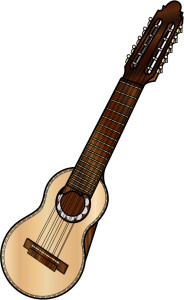 You probably know that different countries have different languages. And diverse cultures have different holidays and foods. But did you know that almost all countries in the world have a national instrument?
You probably know that different countries have different languages. And diverse cultures have different holidays and foods. But did you know that almost all countries in the world have a national instrument?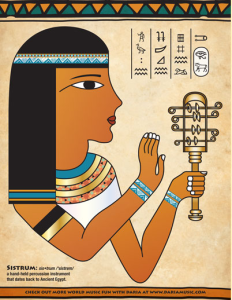 For instance, think about a balalaika from Russia or the ukulele from Hawaii. Can a country have more then one national instrument? Yes, several countries have multiple instruments listed as their national instruments. For instance, Greece has an ancient national instrument – the lyre, and also a modern one, the bouzouki. Peru has both the Afro-Peruvian cajón (box drum) and the Andean charango, a stringed instrument made from the shell of an armadillo.
For instance, think about a balalaika from Russia or the ukulele from Hawaii. Can a country have more then one national instrument? Yes, several countries have multiple instruments listed as their national instruments. For instance, Greece has an ancient national instrument – the lyre, and also a modern one, the bouzouki. Peru has both the Afro-Peruvian cajón (box drum) and the Andean charango, a stringed instrument made from the shell of an armadillo.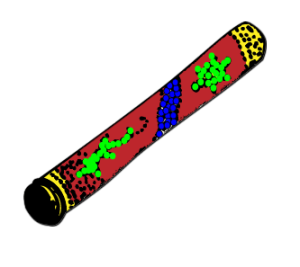 you’ll travel to another country, here’s a fun way to find out more about what you’ll see and hear in advance. Likewise, if you’re simply exploring the world from the comfort of your couch, finding out about national instruments is a great way to discover the many wonders of the musical world.
you’ll travel to another country, here’s a fun way to find out more about what you’ll see and hear in advance. Likewise, if you’re simply exploring the world from the comfort of your couch, finding out about national instruments is a great way to discover the many wonders of the musical world.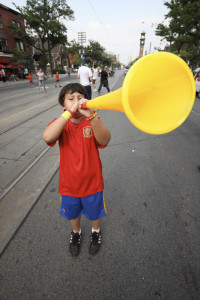 South Africa
– Make Your Own Vuvuzela Stadium Horn
https://www.teacherspayteachers.com/Product/The-Vuvuzela-Make-Play-Your-Own-South-African-Stadium-Horn-1242716
South Africa
– Make Your Own Vuvuzela Stadium Horn
https://www.teacherspayteachers.com/Product/The-Vuvuzela-Make-Play-Your-Own-South-African-Stadium-Horn-1242716

